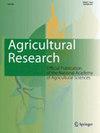This paper seeks to examine how subsistence farmers employ indigenous knowledge methods to enhance food security within rural communities in the Vhembe district. It analyses indigenous knowledge practices used in managing climate change impacts on crop production and determines indigenous knowledge processes used to preserve food to fill the gap during food shortages. The paper also considers the indigenous weather prediction approaches used in the area. A participatory rural appraisal is complemented by a qualitative and quantitative approach. This study used semi-structured interviews, questionnaires and focus group discussions for data collection. A survey of 200 randomly selected indigenous farmers was sampled. The finding revealed that local farmers depend on the use of indigenous knowledge practices to improve household food security. The majority of farmers apply manure in their farms using livestock dumps. Also, it shows that 87.8% of households used sun-drying processes for food preservation and used local mortars to pound and grind foodstuffs such as peanuts and maize. Practices such as crop rotations, mixed cropping and intercropping were employed to improve soil fertility and climate change and reduce insect pest outbursts on crops, hence, improving crop production. Indigenous knowledge of rainfall prediction is helpful in preparation for the planting season. The study recommended that agriculture policies must acknowledge indigenous knowledge practices in development programmes and specific policy interventions to promote the indigenous knowledge systems must focus on enhancing socio-economic factors assisting farmers in improving post-harvest storage facilities. The findings could facilitate interaction between indigenous knowledge stakeholders and the Limpopo provincial agriculture training institution. The fulfilment of the United Nations Sustainable Development Goal 2 on zero hunger and food security could benefit from the indigenous knowledge systems.


